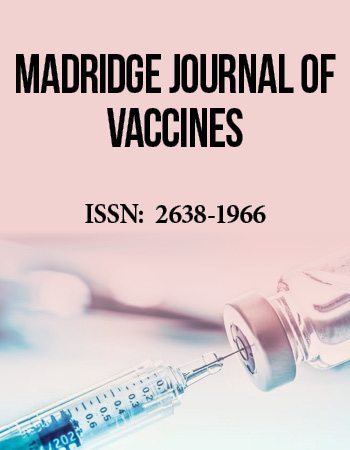International Conference on Vaccines
Feb 20-22, 2017 | Baltimore, USA
An Epstein-Barr virus gp350 subunit vaccine that targets the virus neutralization site
1Research Centre, CHU Sainte-Justine, Canada
2Department of Microbiology, Infectiology and Immunology, University of Montreal, Canada
The Epstein-Barr virus (EBV) is the etiologic agent of infectious mononucleosis andan important cofactor in nasopharyngeal carcinoma,various T and B cell lymphomas and several epithelial cancers. The major virion surface glycoprotein (gp)350is viewed as the best vaccine candidate to prevent infectious mononucleosis and EBV-associatedcancers because natural antibodies to gp350 block virus infection and effectively neutralize the virus. Our laboratory has identified peptide sequences on the gp350 molecule that arerecognized by a virus neutralizing monoclonal. These peptides were shown to generate production of virus-blocking antibodies upon injection in mice.In our recent follow-up work, we postulatedthat a vaccine constructwhich correctly presents these peptides candirect the immune system to generate higher levels of protective antibody as compared to presentation of the entire gp350 molecule. To test this hypothesis, we used a prime-boost strategy wherein mice were primed with recombinantfull-length gp350 (907 amino acid sequence) andboosted with a truncated form of the gp350 molecule encompassingthe gp350 peptides identified in our earlier work. Results indicate thatboosting with the smaller gp350 construct produced higher concentrations of neutralizing antibodies when compared to boosting with the entire gp350 molecule.These datasuggest that a vaccination strategy which enablesthe immune system to focus on the virus neutralizing epitopecan generate a more robust and effective antibody response, which translates to better protection against EBV infection.
Biography:
Dr Carolina Alfieri is a research virologist at the Sainte-Justine University Hospital Centre and associate professor with the Department of Microbiology, Infectiology and Immunology at the University of Montreal. Much of her research and publications have focused on transplant virology, with an emphasis on both mechanistic and translational aspects of Epstein-Barr virus pathogenesis in immunocompromised patients. Dr Alfieriʼs laboratory is currently working on the development of a subunit vaccine to confer protection against infectious mononucleosis and cancers linked to infection by the Epstein-Barr virus. This work is supported by the Canadian Institutes for Health Research and the Cancer Research Society.


